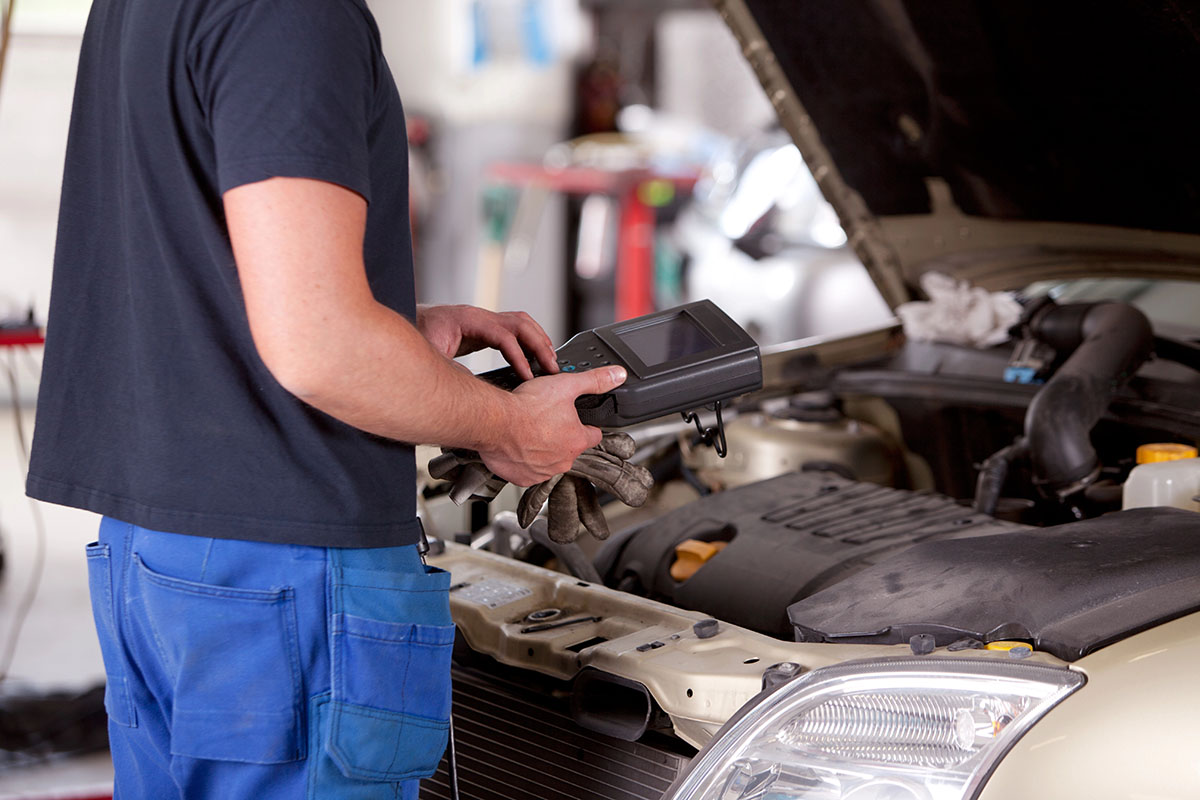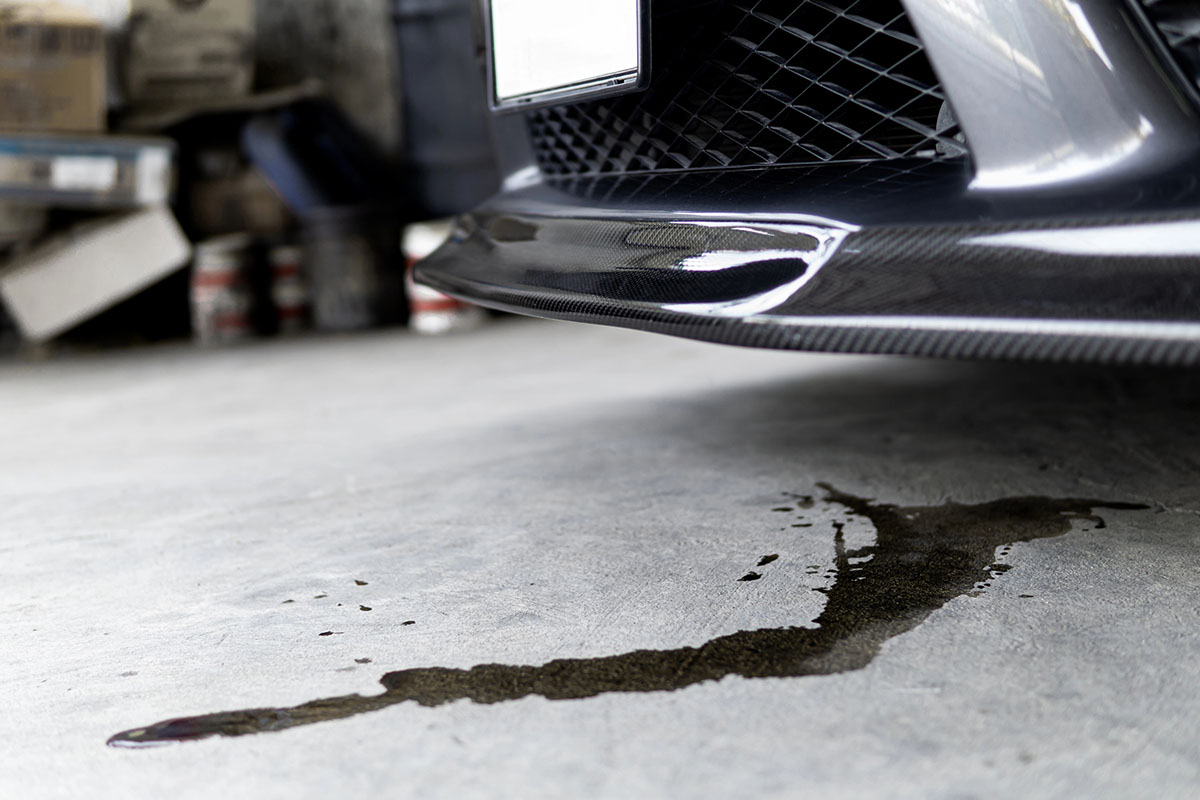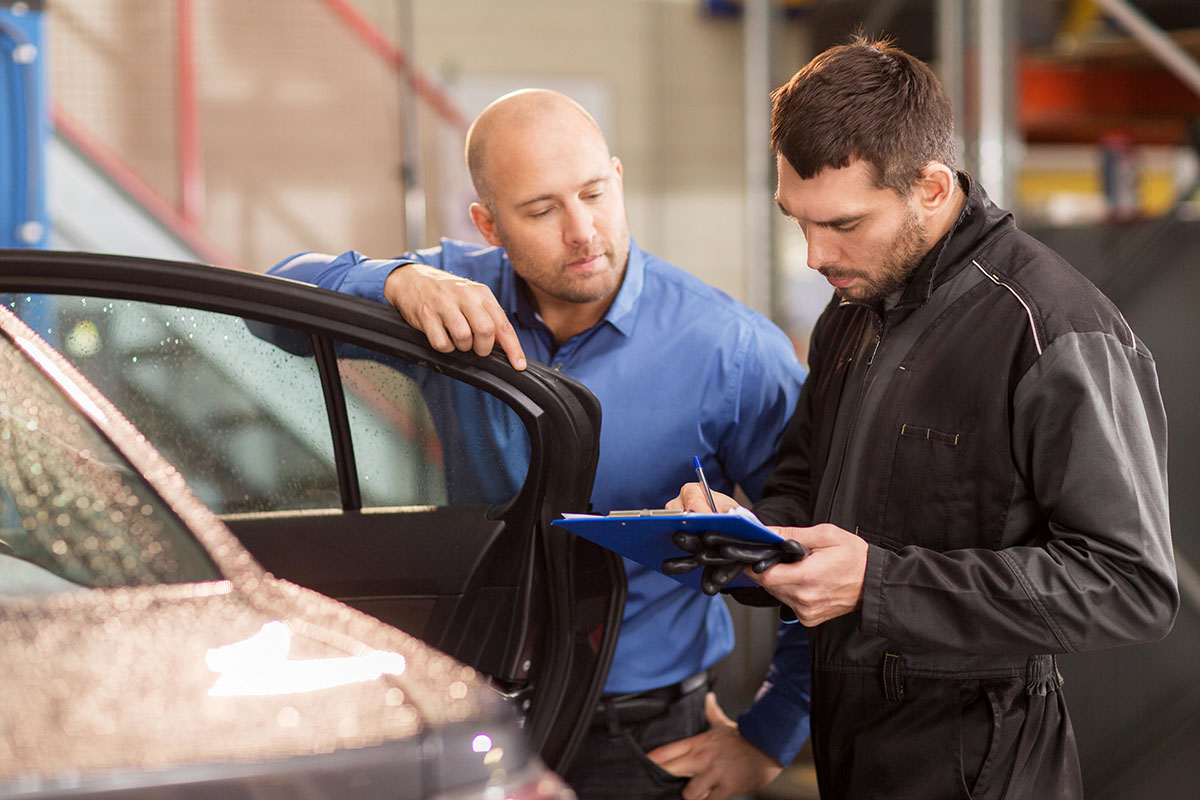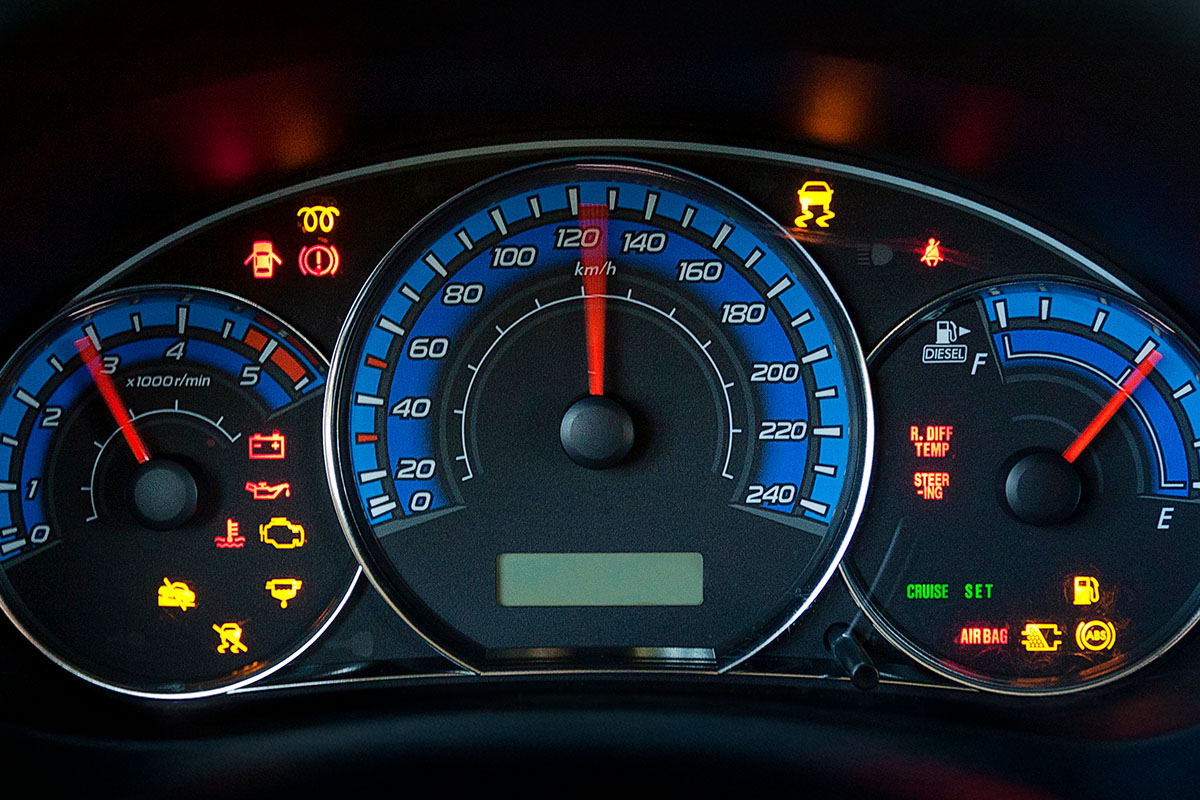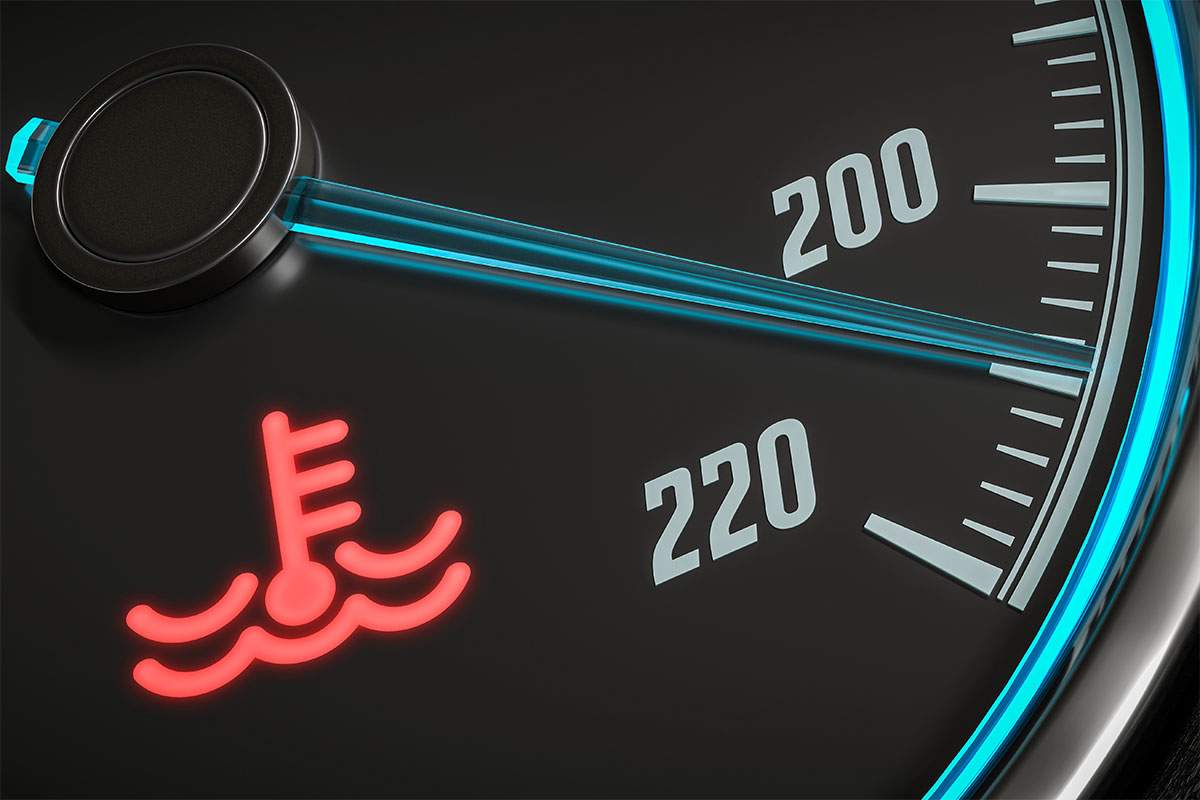Car ownership requires knowing about common car problems and taking proactive steps for vehicle maintenance. We’ll explore the main reasons your car might break down and provide effective ways to prevent these issues, such as:
- The importance of regularly testing your battery to avoid unexpected failures, preventing the need for a Chandler jump start service
- How wear and tear on the alternator can affect your vehicle’s performance
- Why it’s crucial to inspect your tires regularly to prevent flats and blowouts
- Key factors that can lead to engine overheating and tips for monitoring
- Common signs of failure in your transmission, brakes, fuel system, starter motor, suspension, and sensors
Table of Contents
1. Dead Battery
A dead battery is a common reason for unexpected car breakdowns. Several factors contribute to battery failure:
- Age: Most batteries have a lifespan of 3 to 5 years. As they age, their ability to hold a charge diminishes.
- Extreme Temperatures: Both cold and hot weather can significantly affect battery performance. Cold can cause the battery to provide less power, while heat can lead to faster deterioration.
Regular battery health checks play a crucial role in preventing breakdowns. Testing the battery at intervals helps identify potential issues before they escalate into failure.
Be alert for these signs of battery failure:
- Slow cranking when starting the engine
- Dimming headlights, especially when idling
- Dashboard warning lights indicating battery issues
2. Alternator Failure
The alternator is an essential component of your vehicle. Its main function is to generate electricity, which powers the electrical systems and recharges the battery while the engine is running. When issues with the alternator occur, you may experience a noticeable decline in overall performance.
Signs of Alternator Wear
Here are some signs that indicate your alternator may be wearing out:
- Dimming lights: If you notice that your headlights or dashboard lights are not as bright as they used to be, it could be a sign of alternator trouble.
- Warning lights: Keep an eye out for any warning lights on your dashboard that indicate battery or alternator problems.
- Electrical accessories malfunctioning: If you find that your power windows, radio, or air conditioning are not working consistently, it could be due to an issue with the alternator.
Maintenance Tips
To keep your alternator in good working condition and prevent unexpected breakdowns, here are some maintenance tips:
- Regularly check drive belts for wear or looseness; replace them as needed.
- Schedule routine inspections during oil changes to assess the health of your alternator.
- Monitor your vehicle’s electrical systems for any signs of trouble.
3. Flat Tires
Flat tires can occur due to various factors. Understanding these causes can help drivers avoid unexpected breakdowns.
Common Causes of Flat Tires:
- Potholes: Sudden impacts can cause tire damage or air loss.
- Underinflation: Insufficient air pressure increases the likelihood of tire blowouts.
Regular tire inspections play a crucial role in preventing flat tires. By checking for wear, cracks, or embedded objects, you can address potential issues before they escalate.
Tips for Maintaining Proper Tire Pressure:
- Conduct a tire pressure check at least once a month.
- Keep a reliable pressure gauge in your vehicle.
- Refer to your vehicle’s manual for the recommended tire pressure levels.
4. Overheating Engines
Engine overheating is a critical issue that can lead to severe damage if not addressed promptly. Common factors include:
- Coolant leaks: These can result from damaged hoses or connections, leading to a loss of coolant and increased engine temperatures.
- Faulty thermostat: A malfunctioning thermostat may prevent coolant from circulating properly, causing the engine to overheat.
Monitoring your vehicle’s coolant levels and regularly checking the temperature gauge are essential practices. Early detection of abnormalities can prevent costly repairs.
If you notice your engine overheating while driving, take these steps:
- Pull over safely: Find a safe location to stop.
- Turn off the engine: This prevents further damage from excessive heat.
- Check coolant levels: Allow the engine to cool before inspecting coolant levels and topping off as needed.
5. Transmission Failures
Transmission failures can lead to significant vehicle issues. Understanding the different types of transmissions helps identify their vulnerabilities:
- Manual Transmissions: These require driver engagement and can suffer from clutch wear.
- Automatic Transmissions: Often complex, these rely on hydraulic systems that may fail due to fluid leaks.
- Continuously Variable Transmissions (CVTs): Known for smooth acceleration, CVTs are sensitive to overheating and can be costly to repair.
Signs of transmission problems should never be ignored. Look out for:
- Slipping gears
- Unusual noises such as grinding or whining
- Warning lights on the dashboard
- Delayed or rough shifting
6. Brake Problems
Brake problems can severely compromise safety on the road. Common issues include:
- Worn Brake Pads: As brake pads wear down, stopping distances increase, leading to potential accidents.
- ABS Malfunctions: The Anti-lock Braking System (ABS) is crucial for maintaining vehicle control during sudden stops. A malfunction can result in reduced braking efficiency.
To prevent these issues, regular maintenance is essential. Consider these brake maintenance tips:
- Check Brake Fluid Levels: Low brake fluid can lead to brake failure. Ensure levels are within the manufacturer’s recommended range.
- Inspect Brake Pads: Regularly check for signs of wear. Replace pads before they become too worn to ensure effective braking.
7. Fuel System Issues
Fuel system failures can lead to significant performance problems. Common issues include:
- Rough idling: A vehicle may shake or vibrate when stopped.
- Stalling: The engine may unexpectedly turn off, especially during acceleration.
These problems often arise from:
- Dirt accumulation: Debris in the fuel tank can clog filters and injectors.
- Faulty components: Malfunctioning fuel pumps or injectors disrupt fuel delivery.
To prevent these fuel problems, consider these strategies:
- Keep the tank full: Maintaining at least a quarter tank prevents sediment from settling and being drawn into the engine.
- Use quality fuel: Opt for reputable gas stations to minimize contamination risks.
8. Starter Motor Failures
Starter motor failures can leave you stranded without warning. Common causes include:
- Worn solenoids: These components are responsible for engaging the starter motor. When they fail, the vehicle may not start at all.
Signs of starter motor issues often present themselves as:
- Unusual noises during ignition attempts: Grinding or clicking sounds indicate a problem that requires immediate attention from a qualified mechanic.
- Frequent starting problems: If your car struggles to start or makes odd sounds, it’s crucial to address these symptoms promptly.
Listening for strange noises while starting your vehicle acts as an early warning system.
9. Suspension and Steering Issues
Suspension issues and steering problems can significantly affect your driving experience and vehicle safety. Rough roads worsen wear on suspension parts, leading to:
- Compromised handling capabilities
- Increased discomfort while driving
Regular inspections help catch potential problems early. Pay close attention to key components such as:
- Tie rods: These connect your steering gear to the wheels. Wear can cause misalignment and instability.
- Power steering fluid levels: Low fluid can lead to difficulty in steering, increasing strain on the system.
10. Malfunctioning Sensors
Sensors are essential for the proper functioning of modern vehicles. They constantly track various factors to improve fuel efficiency and meet emissions regulations. The information gathered by these sensors allows the engine control unit (ECU) to make instant changes, impacting the overall performance of the vehicle.
Common sensor-related issues include:
- MAP Sensor Failure: A malfunctioning Manifold Absolute Pressure (MAP) sensor can disrupt the air-fuel mixture ratio. This leads to poor acceleration response, even when throttle input is applied.
- Oxygen Sensor Problems: Faulty oxygen sensors can cause increased emissions and decreased fuel efficiency. They are essential for maintaining the proper air-fuel mixture.
Ignoring engine light warnings related to sensor issues can lead to severe complications. If not addressed promptly:
Excessive unburned hydrocarbons may escape into the exhaust stream.
This can damage components such as the catalytic converter, which is vital for converting harmful emissions before they exit the vehicle.
Preventive Measures to Avoid Breakdowns
Routine Maintenance Practices
Preventing breakdowns requires a proactive approach to vehicle maintenance. Implementing regular checks can significantly enhance your car’s reliability and longevity. Here are essential maintenance practices to consider:
Battery Checks: Inspect battery terminals for corrosion and test the battery’s voltage regularly. Replace batteries older than three years to avoid unexpected failures.
- Tire Inspections: Assess tire pressure monthly and examine tread depth. Look for signs of wear or damage, such as bulges or embedded objects, and rotate tires as recommended.
- Fluid Levels Maintenance: Regularly check engine oil, coolant, brake fluid, and transmission fluid levels. Topping off fluids can prevent overheating and ensure smooth operation.
- Brake System Evaluations: Monitor brake performance by listening for unusual noises and checking brake pads for wear. Schedule inspections every six months or as specified in the owner’s manual.
- Engine Monitoring: Pay attention to warning lights on your dashboard. Address any alerts promptly, particularly those related to the engine, brakes, or electrical systems.
Monitoring Techniques
To minimize the risk of breakdowns, adopt proactive monitoring techniques. These strategies ensure early detection of potential issues:
- Regular Visual Inspections: Check for leaks, worn belts, or damaged hoses under the hood.
- Dashboard Alerts: Pay attention to warning lights indicating battery or engine issues.
- Fluid Level Checks: Monitor oil, coolant, brake fluid, and transmission fluid levels frequently.
- Tire Pressure Monitoring: Utilize a pressure gauge to maintain optimal tire inflation for performance and safety.
- Scheduled Diagnostic Tests: Use OBD-II scanners to identify sensor malfunctions or error codes.
Emergency Preparedness
Being prepared for unexpected car breakdowns is crucial. Here are strategies to enhance your emergency readiness:
- Emergency Kit: Equip your vehicle with essentials like a first aid kit, flashlight, water, and non-perishable snacks.
- Spare Tire and Tools: Carry a spare tire, jack, and necessary tools for quick repairs.
- Roadside Assistance: Enroll in a roadside assistance program for peace of mind.
- Contact Information: Keep important contact numbers handy, including your mechanic and towing services.
Let Us Help If You’re Stranded! We’re Just a Call Away.
Despite your best efforts, breakdowns can happen unexpectedly. Should you find yourself in such a situation, remember:
- Stay Calm: Pull over to a safe location.
- Turn On Hazard Lights: Make your vehicle visible to others.
- Contact Us: Our team is ready to assist you with prompt assistance and reliable towing in Chandler.
Keep our number handy. Quick Chandler roadside assistance can minimize stress and get you back on the road swiftly. Don’t hesitate; we’re just a call away!
Frequently Asked Questions About Car Breakdowns
What are the top reasons for car breakdowns?
The top reasons for car breakdowns include dead batteries, alternator failures, flat tires, overheating engines, transmission failures, brake problems, fuel system issues, starter motor failures, suspension and steering issues, and malfunctioning sensors.
How can I prevent a dead battery?
To prevent a dead battery, regularly check the battery’s health, be aware of signs of battery failure such as dimming headlights or slow engine cranking and ensure that extreme temperatures do not affect the battery’s performance. Routine battery testing is also recommended.
What maintenance tips can help avoid alternator problems?
To avoid alternator problems, keep an eye on dashboard warning lights that may indicate issues. Regularly inspect the alternator for wear and ensure that all electrical connections are secure. Have the alternator tested during routine vehicle maintenance.
What should I do if my engine starts to overheat?
If your engine starts to overheat while driving, pull over safely and turn off the engine immediately. Allow it to cool down before checking coolant levels. If necessary, add coolant and monitor for leaks. It’s crucial to address any underlying issues promptly to prevent further damage.
How often should I check my brakes?
You should check your brakes regularly as part of routine vehicle maintenance. This includes inspecting brake fluid levels and pad wear. It’s advisable to have a professional inspection at least once a year or more frequently if you notice any unusual sounds or changes in braking performance.
What are the signs of a failing starter motor?
Signs of a failing starter motor include unusual noises when attempting to start the engine, such as clicking sounds or grinding noises. If the vehicle does not start at all or experiences intermittent starting issues, it’s essential to have it inspected by a qualified mechanic immediately.
